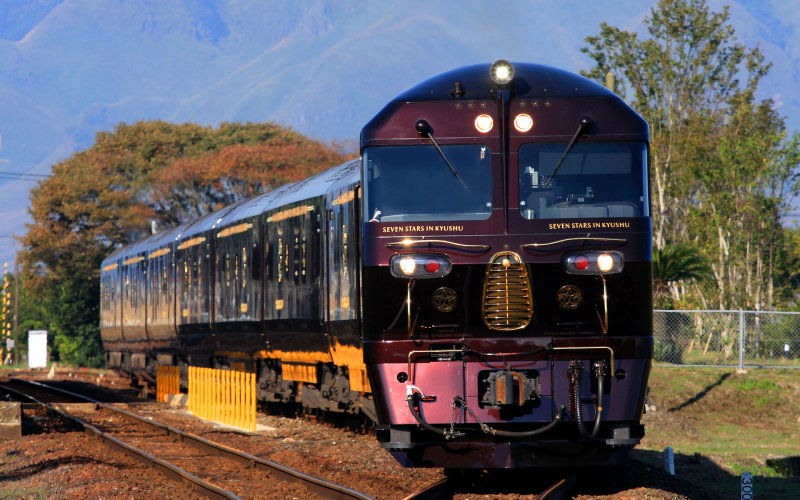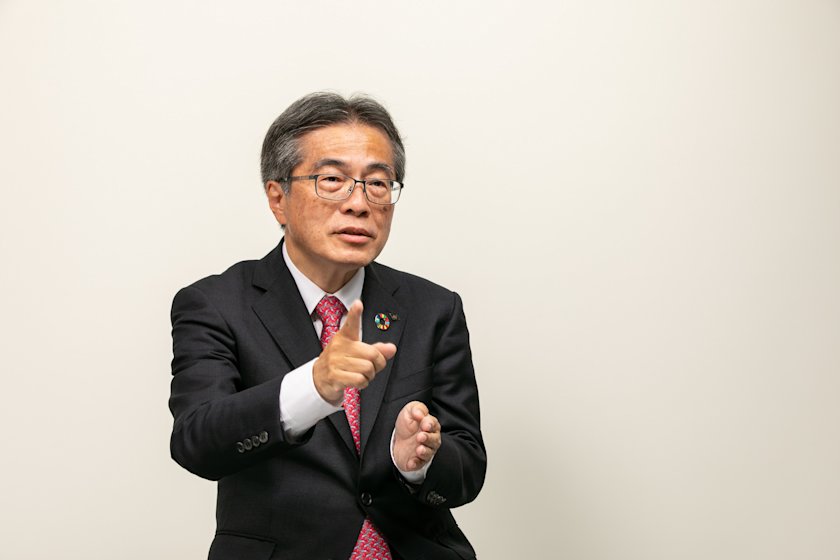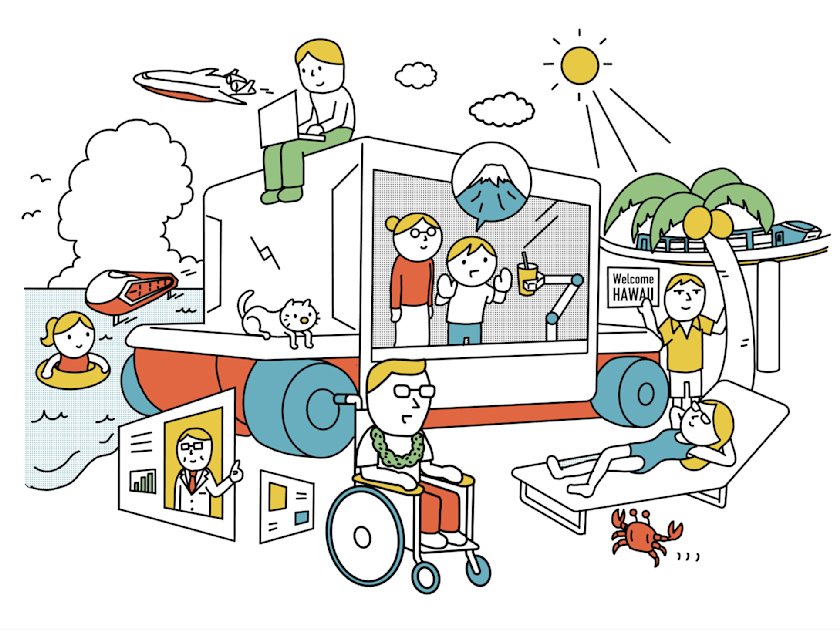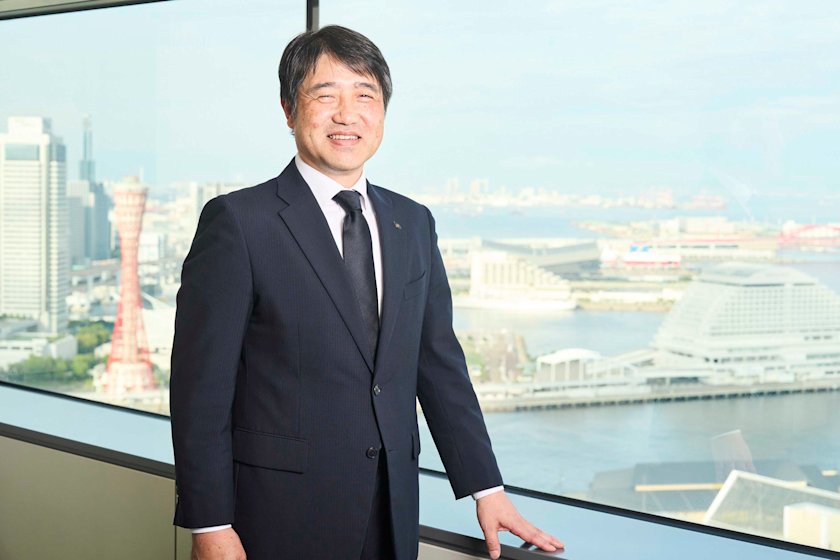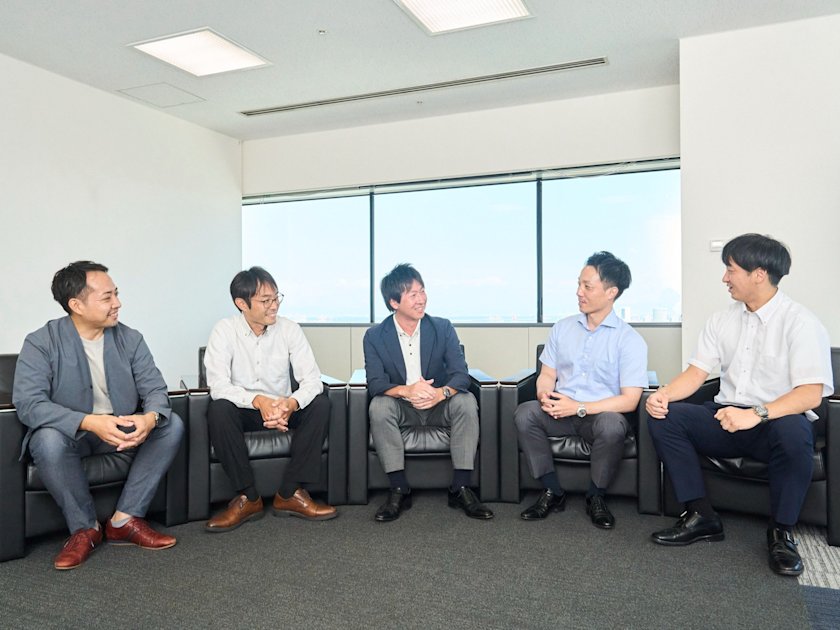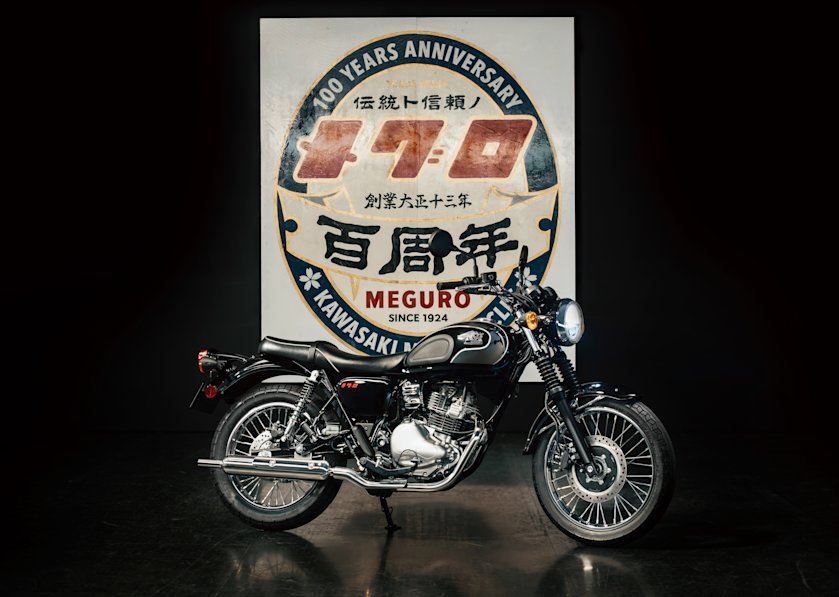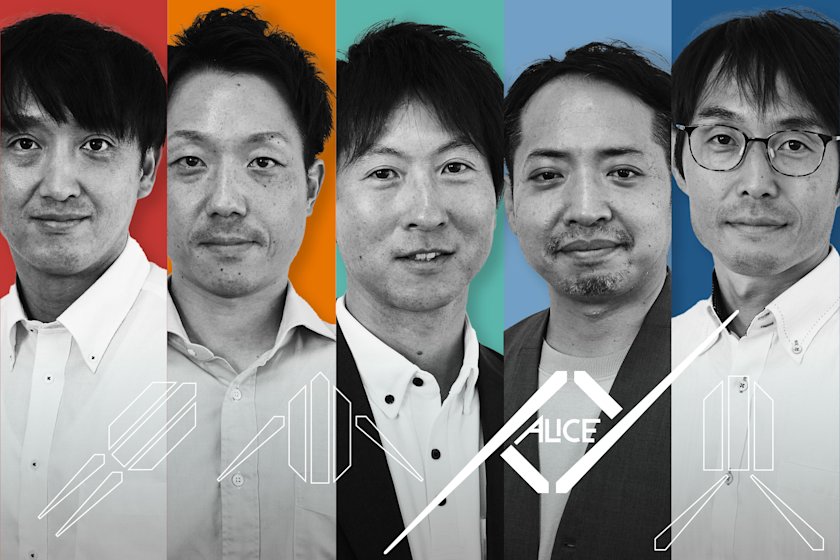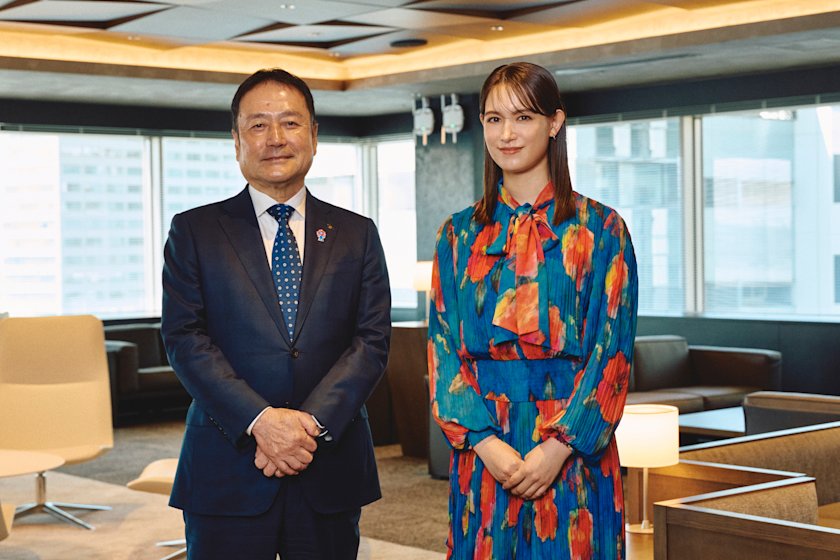On October 1, 2021, the rolling stock business of Kawasaki Heavy Industries, Ltd., was succeeded to a new company, and Kawasaki Railcar Manufacturing Co., Ltd. was launched. In this article, Hiroshi Murao, the president of Kawasaki Railcar Manufacturing, answers questions about the company’s objectives and the value provided to society.
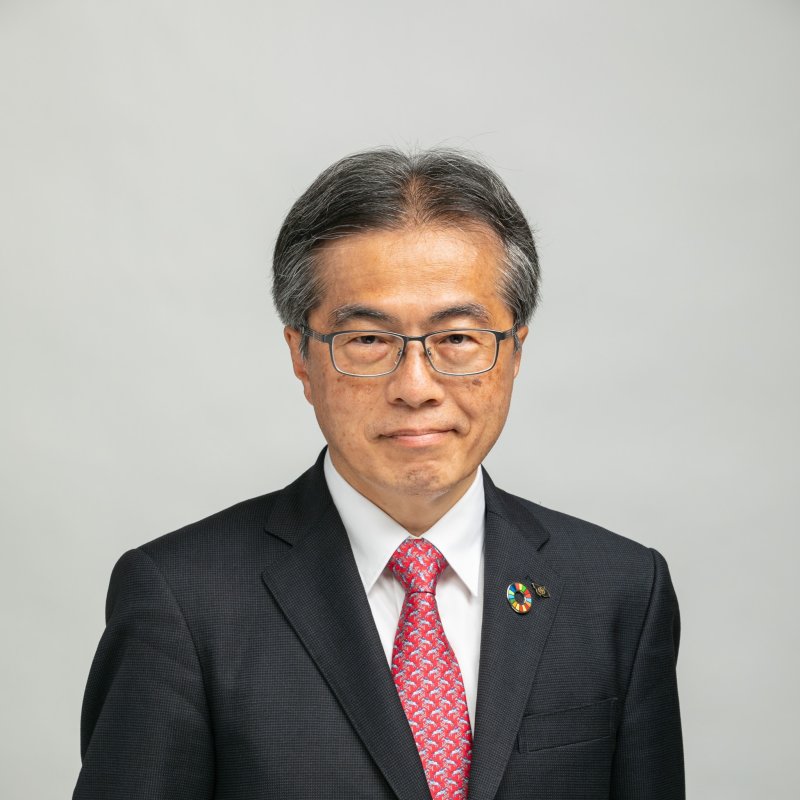
Kawasaki Railcar Manufacturing Co., Ltd.
Born in 1959 in Osaka Prefecture, Japan, Hiroshi Murao joined Kawasaki Heavy Industries in 1982. After serving as the general manager of marketing & sales division and executive officer of marketing & sales at the Rolling Stock Company, Mr. Murao was appointed the managing executive officer (president of the Rolling Stock Company of Kawasaki Heavy Industries) in April 2021. He became president and chief executive officer of Kawasaki Railcar Manufacturing in October 2021.
Now is the best time for a change
Beginning a new chapter, what is the goal of Kawasaki Railcar Manufacturing?

The spread of the novel coronavirus is having a variety of different impacts on society and the industry. The transport industries involving railway and airline companies have been affected by the significant decrease in travel, which affects investment plans. However, I think this difficult situation is precisely the time for a change. Since commencing the manufacture of rolling stock in 1906, Kawasaki Heavy Industries contributed to the development and modernization of railroad mobility. Pursuing innovative engineering capabilities, superior quality, and high productivity, the company provided society with different types of vehicles that offered cutting-edge technology for that era, such as locomotives, passenger and freight cars, Shinkansen and other electric trains, and automated guideway transit systems, as well as the accompanying systems and devices. In fiscal year 2021, the 115th anniversary of our business, this division made a new start as Kawasaki Railcar Manufacturing Co., Ltd., in order to ensure autonomous business administration, to form alliances and collaborations with industry partners agilely and flexibly, and to pioneer new business regions. As society and industry change, we cannot survive if we simply continue with conventional activities. As employees work on their tasks, they understand it as a good opportunity for positive change.
The objective of the new company is to establish a diverse business style by revealing new markets. Our current target is the R211 Project to deliver subway cars to New York City Transit (NYCT) by 2026, and we intend to produce results that will meet the expectations of all stakeholders, both internal and external. If the contract options are exercised, this project will be the largest ever with more than 1,600 cars in total and sales exceeding 400 billion yen. Because of the increasing demand to develop railway infrastructure accompanying the economic growth of emerging countries in Southeast Asia and other areas, the market is expected to keep growing, and we will address such growth positively. With regard to the alliances and collaborations with industry partners, Kawasaki Heavy Industries is a leader in partnering with external parties for many projects, including the Taichung City Railway System of Taiwan*1 and the MRT cars for Singapore's Land Transport Authority.*2 Kawasaki Railcar Manufacturing will continue to take the initiative and enhance competitiveness while building relationships of trust with other companies. As a new company, we not only produce and supply rolling stock but also achieve flexible, prompt collaboration in a wider variety of business fields, including maintenance and systemization, to meet customer needs.
*1 News release on the Taichung City Railway System
*2 News release on the MRT cars for Singapore's Land Transport Authority

Service-oriented business with gathered expertise of the Kawasaki Group
What social issues and needs will Kawasaki Railcar Manufacturing address?

We have a major social responsibility as a rolling stock manufacturer to support quality rail infrastructure in Japan, and our mission and obligation to transport people safely and securely will never change. In particular, I am thinking about how we can contribute to the maintenance work that costs railway companies a substantial amount of money and labor to ensure steady, safe operation.
Therefore, we focus on extending technical development and service provision in view of the maintenance of tracks. While Japanese rail operators organize firm maintenance plans, overseas countries sometimes do not, which means business opportunities should exist in those places. The delivery of mass rapid transit (MRT) cars to Dhaka Mass Transit Company in Bangladesh started in April 2021, and we are also responsible for overall project management, the supply of rolling stock and depot equipment, and the support for maintenance. With train manufacturing as the center of the company, our business will reform into a service-oriented enterprise to respond to problems and the needs of our clients by the market-in approach. My vision for the future is to expand the business so that both systems of the vehicles themselves and maintenance services are provided in just one place.
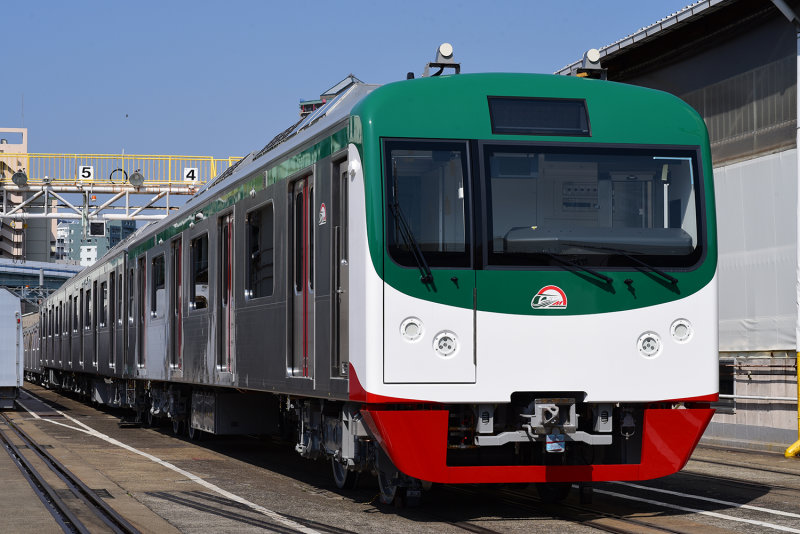
How do you use the comprehensive capabilities of the Kawasaki Group?

The business areas of Kawasaki Heavy Industries cover the land, sea, and air, such as motorcycles, ships, robots, and aircraft, and research and development is conducted cross-divisionally among all group companies. The mutual use of technologies between different domains enables the development of competitive new products and greater participation in new business; consequently, considerable synergistic effects are generated as the whole Group. This is a huge advantage for differentiation from competitors.
For example, we released remote track monitoring services in North America. This system employs track condition monitoring devices that apply analysis and sensing technologies cultivated by Kawasaki Heavy Industries. Monitoring devices, such as sensors and cameras, are mounted on trains, measure the track parameters during normal service operations, and the devices submit analysis data to the railway company. In order to check the railroads, they normally operate dedicated track inspection cars and perform visual checks by foot patrol on a regular basis, which requires personnel and labor expenses. Remote track monitoring services reduce the frequency of manual track monitoring and serve to make maintenance more efficient.

Moreover, railway systems are environmentally friendly compared to other means of public transportation thanks to less CO2 emissions during operation. Actions for carbon neutrality are called for worldwide, and we provide hydrogen supply systems for rolling stock. In order to achieve higher energy efficiency, carbon-free streamlined operation would be realized if the electricity for trains were supplied from a hydrogen power station, for example. In addition, factory automation using robotic technology might be suggested. We will continue to provide diverse solutions by taking advantage of the comprehensive expertise of the Kawasaki Group.
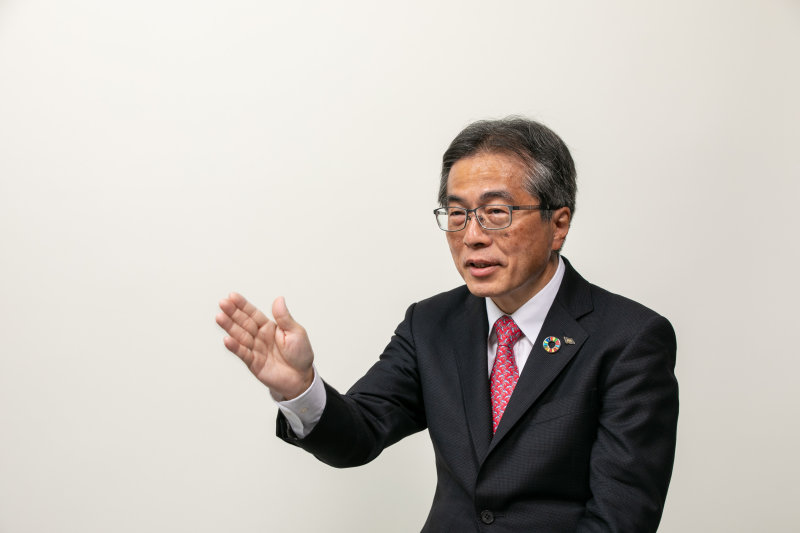
For day-to-day safety and an exciting future
As the president, what do you think is the value of the rolling stock business and what is important?

On the establishment of Kawasaki Railcar Manufacturing, the Corporate Philosophy was defined as “We pledge to ensure day-to-day safety and to bring about an exciting future by constantly tackling the challenges in craftsmanship and technological innovation.” This commitment to build the day-to-day safety of passengers, rail operators, and Kawasaki Railcar Manufacturing employees, as well as manufacture trains that everyone wants to ride, leads to an exciting future where our vocation is to produce such vehicles with a sense of fulfillment in the work. This Corporate Philosophy is not a saying to be placed on a wall in a decorative frame that we repeat aloud together to remember it. Therefore, a video was made to familiarize the employees with the philosophy. Different persons were interviewed about Kawasaki Railcar Manufacturing when recording the video, and many employees mentioned the wish to create rolling stock that inspires young passengers.
As a child, I lived in Okayama and was excited every day to see steam locomotives on the Kibi Line, which made me a fan of railways. The comfort of the first time traveling on the 151 Series Limited Express Uzushio from Okayama to Osaka was amazing and that experience gradually formed the desire to work in the railroad industry and produce vehicles that would impress users and transport their dreams. The locomotive for Seven Stars in Kyushu of the Kyushu Railway Company, Train Suite Shiki-shima of the East Japan Railway Company, and MIZUKAZE of the West Japan Railway Company, which we manufactured, should be representative trains that inspire children. Although the persons involved in the production of those trains exerted great effort, they must have enjoyed the feeling of extraordinary achievement at the time of completion and delivery.
At the root of what we have is the will to serve and resolve social issues by making use of advanced technologies, such as hydrogen-powered railroad cars, and to continue to produce vehicles that animate everyone, including manufacturers and passengers. Above all, it is most important to fabricate rolling stock without any compromise to safety. Together we will constantly take on challenges with pride in engagement and with the quality that can deliver safety and a wonderful impression.

